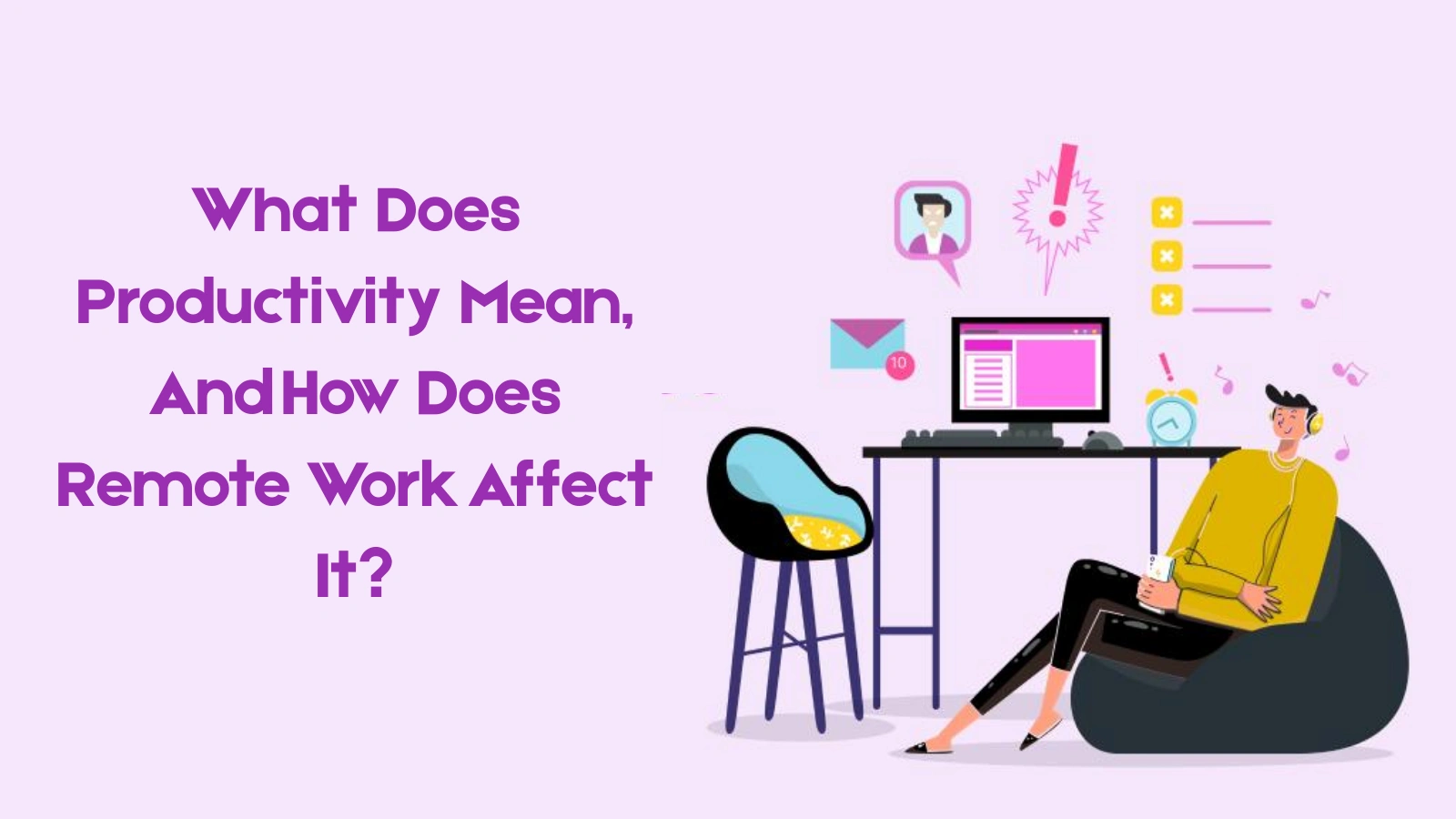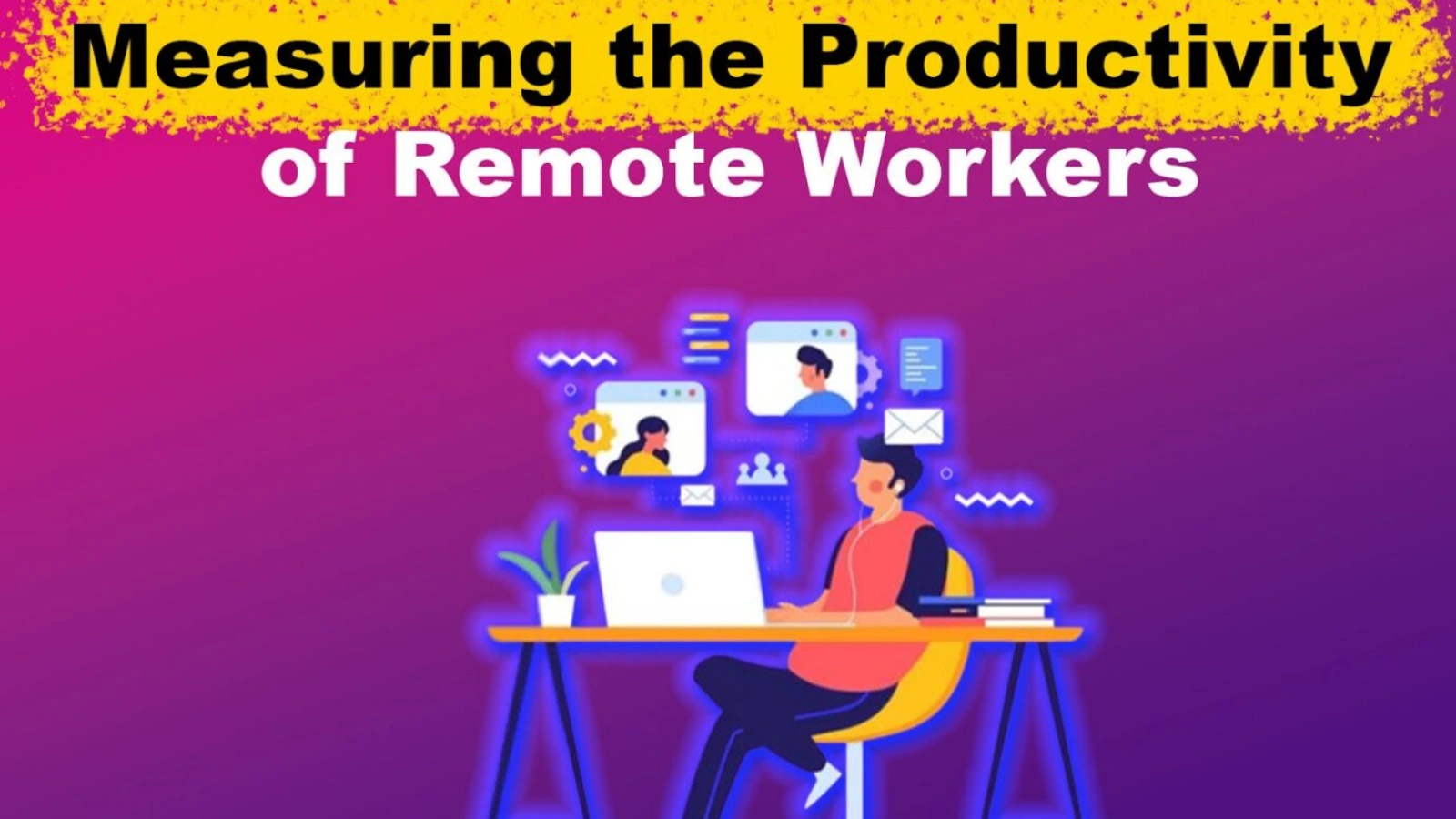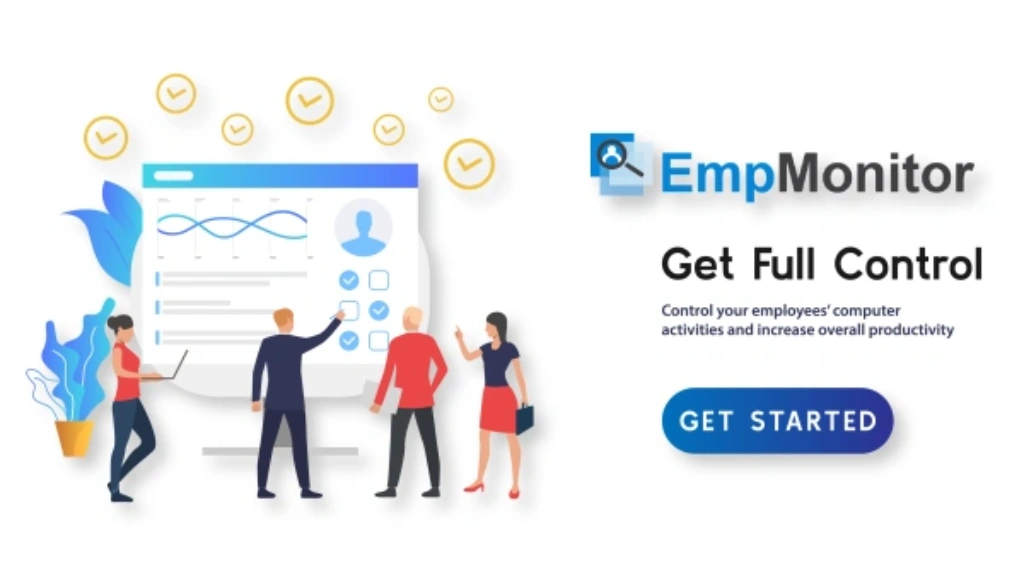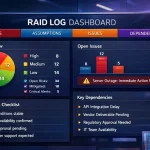The global shift to remote work has sparked one of the most debated questions in modern work culture: Is working from home more productive than working in a traditional office? What started as a pandemic-era adjustment has become a long-term reality for millions. Employees have ditched daily commutes, traded cubicles for kitchen tables, and reimagined their 9-to-5 routines. But has this transition made us more efficient?
Let’s explore whether working from home actually boosts productivity or simply reshuffles our workday dynamics.
Hit ‘Play’ Button & Tune Into The Blog!
How Has Work Evolved, And What Made Remote Work Possible?
Today, the very metrics of productivity are being re-examined. The question is no longer about where we see work happening, but how we value its outcomes. Are we prioritizing quantitative metrics like tasks completed, or qualitative ones like innovation and quality? Does employee well-being now factor into the productivity equation?
But technology changed the game. Collaboration tools, cloud storage, and video conferencing made remote work not only possible but, in many cases, more convenient. The pandemic merely accelerated a transformation already in motion.
What Does Productivity Mean, And How Does Remote Work Affect It?
Before we can answer is working from home more productive, we need to understand what productivity means. Are we referring to completing more tasks in less time, delivering higher quality work, improving focus, or even feeling more satisfied in our roles?
For some, productivity is all about speed or hitting deadlines. For others, it’s measured by creativity, accuracy, or reduced workplace stress. Research and employee feedback show that remote work can support different types of productivity, depending on the role, work environment, and the individual’s personality and preferences.
Additionally, productivity can also be tied to well-being. When employees have greater control over their schedules, avoid long commutes, and work in comfortable environments, they often report feeling more motivated and less burned out. This mental clarity can translate into better performance, even if the number of hours worked remains the same or less.
The Case For Higher Productivity At Home
So, is working from home more productive? Many studies and personal experiences suggest the answer is yes. From fewer office interruptions to better control over one’s schedule, there are compelling reasons to support this shift.
Fewer Distractions from Office Chatter:
Working from home eliminates common office distractions like spontaneous conversations, loud environments, and frequent interruptions. This allows employees to concentrate more deeply and stay in a productive flow for longer periods, which is essential for tasks that require focus and critical thinking.
Personalized Workspaces:
At home, employees can design their workspace to match their preferences, whether it’s choosing ergonomic chairs, adjusting lighting, or playing ambient music. This control over their environment increases comfort and reduces stress, making it easier to stay focused and perform at their best.
Elimination of Commute Time:
The daily commute, often one to two hours, is completely erased. This saved time can be reallocated to early work starts, relaxation, or even professional development. For many, this change alone answers the question: Is working from home more productive? Absolutely.
Flexible Scheduling:
Remote work often allows for flexible hours, enabling people to work when they feel most alert and creative. Whether someone is a morning person or a night owl, they can align their work schedule with their peak productivity times, resulting in higher-quality output and better work-life balance.
The Case Against Higher Productivity At Home
While the benefits are real, asking is working from home more productive also means acknowledging the downsides.
Household Distractions:
Crying babies, ringing doorbells, household chores, and noisy neighbors can easily break concentration. Unlike an office setting, not everyone has a quiet, dedicated workspace at home. These constant interruptions can disrupt workflow and reduce the quality of focus-intensive tasks.
Lack of Supervision:
Some employees perform best under structured supervision and deadlines. Without regular check-ins or in-person accountability, it’s easy to fall into habits of procrastination or low output. For self-motivated workers, this may not be an issue, but others may struggle without clear oversight.
Isolation and Burnout:
Remote work often limits social interaction, which can lead to feelings of loneliness or disconnection from the team. Additionally, when there’s no clear boundary between work and home life, many people find themselves working longer hours, which can result in burnout, emotional exhaustion, and decreased motivation over time.
What the Data Tells Us About Remote Productivity?
So, is working from home more productive? Various studies suggest that it often is. Research shows remote employees frequently report increased efficiency due to fewer office distractions, greater flexibility, and more control over their workspace.
A large number of remote workers believe they’re as productive, or even more so, compared to working in a traditional office. However, many managers still express concerns about accountability and productivity without physical oversight.
This disconnect between employees’ lived experiences and leadership’s perceptions underscores the need for objective, data-driven insights. Tools like remote work time tracking can bridge this gap by providing transparency, clear metrics, and accurate productivity assessments. Without such systems in place, it’s hard to truly measure whether working from home is more productive in tangible terms.
How Do You Measure Remote Productivity The Right Way?
To truly determine is working from home more productive, companies need to shift how they measure success. Traditional metrics like hours spent at a desk or online status don’t capture the full scope of modern productivity. Instead, the focus should be on meaningful, outcome-based indicators.
Output over hours: Are employees consistently meeting or exceeding their goals, regardless of how many hours they work? Productivity should be about results, not just time spent online.
Quality of work: Fewer mistakes, stronger attention to detail, and higher customer satisfaction are clear indicators of performance quality in a remote setting.
Employee engagement: Motivated, focused employees tend to produce better work. Tracking engagement levels through regular feedback, pulse surveys, or involvement in team activities can offer valuable insight.
Communication flow: Seamless collaboration across tools and teams usually reflects well-organized processes. When communication is clear and timely, it supports both efficiency and accountability.
Organizations that rely solely on screen time, keystroke monitoring, or login logs risk overlooking what really matters: outcomes, satisfaction, and effectiveness. Remote productivity needs to be assessed with a modern, flexible mindset.
Also Read:
Is Work From Home Monitoring Helpful Or Harmful?
The growing use of work-from-home monitoring tools reflects employers’ need for clarity around remote productivity. These tools can track keystrokes, screen time, app usage, and even webcam activity to promote accountability and transparency.
When used wisely, such tools provide helpful insights. But overly aggressive monitoring can harm morale; employees who feel overly surveilled may experience stress, distrust, and reduced engagement. The key lies in striking a balance: using monitoring to empower, not control.
To answer the question “is working from home more productive?” with confidence, companies need more than assumptions; they need data. Smart solutions like EmpMonitor help bridge that gap. Instead of simply tracking time, it offers a holistic view of team behavior, helping businesses support performance and growth without micromanagement.
How EmpMonitor Helps Make Remote Work More Productive?
In a remote work environment, effective management goes beyond oversight; it’s about empowering employees, ensuring transparency, and streamlining operations. Tools like EmpMonitor help answer the question is working from home more productive by offering real-time insights into performance, time usage, and workflow patterns, all while maintaining trust and efficiency.
Key Features That Support Remote Productivity:
Employee Monitoring:
EmpMonitor provides a clear, data-rich overview of each team member’s workday. Managers can view daily and hourly activity logs, helping them understand when, how, and on what employees are spending their time, enabling smarter workload balancing and targeted support.
Time Tracking:
This feature automatically tracks working hours with real-time timesheets. It distinguishes between active, idle, and break periods so managers can accurately assess productivity levels and identify time usage trends without manual input or guesswork.
User Activity Monitoring:
With this, organizations get detailed insights into the websites and applications used during work hours. It helps identify distractions, maintain focus, and guide employees toward more efficient habits, essential for remote productivity improvement.
Attendance Monitoring:
Forget outdated punch-ins and spreadsheets. EmpMonitor digitizes attendance and leave tracking, making it easy to manage time-off requests and ensure payroll accuracy. It helps HR and managers keep things organized even when the team is fully remote.
Live Screencasting:
Need to offer quick support or monitor workflow in real time? Live screencasting lets managers view employee screens instantly without interrupting their tasks. It’s especially useful for training, troubleshooting, or verifying performance on critical projects.
Project Management:
Assign tasks, track progress, and manage resources, all from one intuitive dashboard. EmpMonitor’s built-in project management tools help remote teams stay aligned, hit deadlines, and work collaboratively even across different time zones.
EmpMonitor isn’t just about tracking, it’s about empowering remote teams to perform better, stay connected, and grow with clarity and confidence.
The Role Of Autonomy In Productivity
One of the reasons why the answer to is working from home more productive may lies in autonomy. When workers are trusted to manage their time, they often step up.
Autonomy fuels motivation. When employees feel in control, they’re more likely to innovate, problem-solve, and perform. This sense of ownership doesn’t always exist in highly supervised office environments.
How Can You Effectively Manage A Remote Workforce?
Managing a remote team requires a shift in leadership style. What works in a traditional office may not translate well to a distributed environment. That’s why effective remote workforce management relies on intentional strategies and the right tools to keep everyone aligned and productive, even from a distance.
Successful remote leaders:
- Set clear expectations to eliminate confusion and keep team goals transparent.
- Communicate frequently and openly through channels like chat, email, and video calls to maintain strong collaboration.
- Provide regular feedback and recognition to motivate team members and acknowledge their efforts.
- Encourage work-life balance so employees don’t burn out while trying to prove their productivity.
- Foster a culture of trust, giving employees the autonomy to manage their work without feeling micromanaged.
Remote work doesn’t reduce the need for leadership; it simply reshapes how leaders show up.
Also Read:
Is Remote Work More Productive For Every Type Of Job?
Remote work can boost productivity, but not for every role. Jobs like software development, marketing, writing, and customer support often perform well remotely due to their digital nature and independence. However, roles that rely on physical presence, like product testing or hands-on labor, may struggle without in-person collaboration or access to tools. To truly answer is working from home more productive, it depends on job type, team dynamics, and work requirements, making a tailored approach essential.
Final Verdict: Can Working From Home Really Boost Productivity For Everyone?
There’s no one-size-fits-all answer. But here’s what we know:
- Remote work boosts productivity for many, especially in knowledge-based roles.
- The right environment, tools, and leadership make a big difference.
- Productivity depends on trust, autonomy, and communication, not just location.
So, is working from home more productive? For most people and businesses with the right setup, it absolutely can be. But it requires conscious effort to manage the challenges and optimize the benefits. As organizations continue to adapt, the future of remote work will likely blend flexibility with structure, ensuring employees thrive no matter where they are.
Tips For Boosting Work-From-Home Productivity
If you’re working remotely and want to stay efficient, these practical habits can make a big difference:
Create a Dedicated Workspace:
Set up a separate space just for work, ideally with a desk and a comfortable chair. This helps you mentally separate work from personal life and boosts focus.
Stick to a Routine:
Start and end your workday at the same time daily. A consistent routine creates structure and prevents overworking, which is key when evaluating is working from home more productive in the long run. Combined with effective working from home monitoring, this balance ensures accountability while still giving employees the flexibility they need to perform at their best.
Use Task Management Tools:
Platforms like Trello, Asana, or ClickUp keep your tasks organized and visible. They make it easier to prioritize and meet deadlines.
Block Distractions:
Use apps like Forest or Freedom to minimize interruptions. These tools help you stay focused by blocking distracting sites during work hours.
Communicate Often:
Check in regularly with your team via Slack, Zoom, or email. Frequent communication avoids misunderstandings, strengthens teamwork, and helps assess whether is working from home more productive for everyone involved.
Take Real Breaks:
Step away from your screen and move around during breaks. This refreshes your mind and prevents burnout.
These habits make remote work more structured, enjoyable, and productive, helping you confidently answer is working from home more productive with a yes.
Conclusion
The workplace revolution is here. Whether you’re a business owner, manager, or remote employee, understanding the dynamics of remote productivity is essential.
To answer the big question, is working from home more productive? We must move beyond surface-level assumptions. Productivity is personal. It thrives where employees feel trusted, supported, and empowered.
Smart tools like EmpMonitor help teams achieve this balance by providing visibility without micromanagement, making productivity measurable yet flexible.
For many, home is where the productivity is.
FAQs
1. Does working from home affect team collaboration long-term?
Ans. Yes, without intentional efforts like regular check-ins and collaborative tools, team cohesion and innovation can suffer over time.
2. How can employers maintain company culture in remote settings?
Ans. Virtual events, consistent communication, and shared values help reinforce company culture, even when teams are distributed.
3. What are the tax implications of working from home?
Ans. In some countries, remote workers may qualify for home office deductions, but eligibility varies by region and employment status.


















